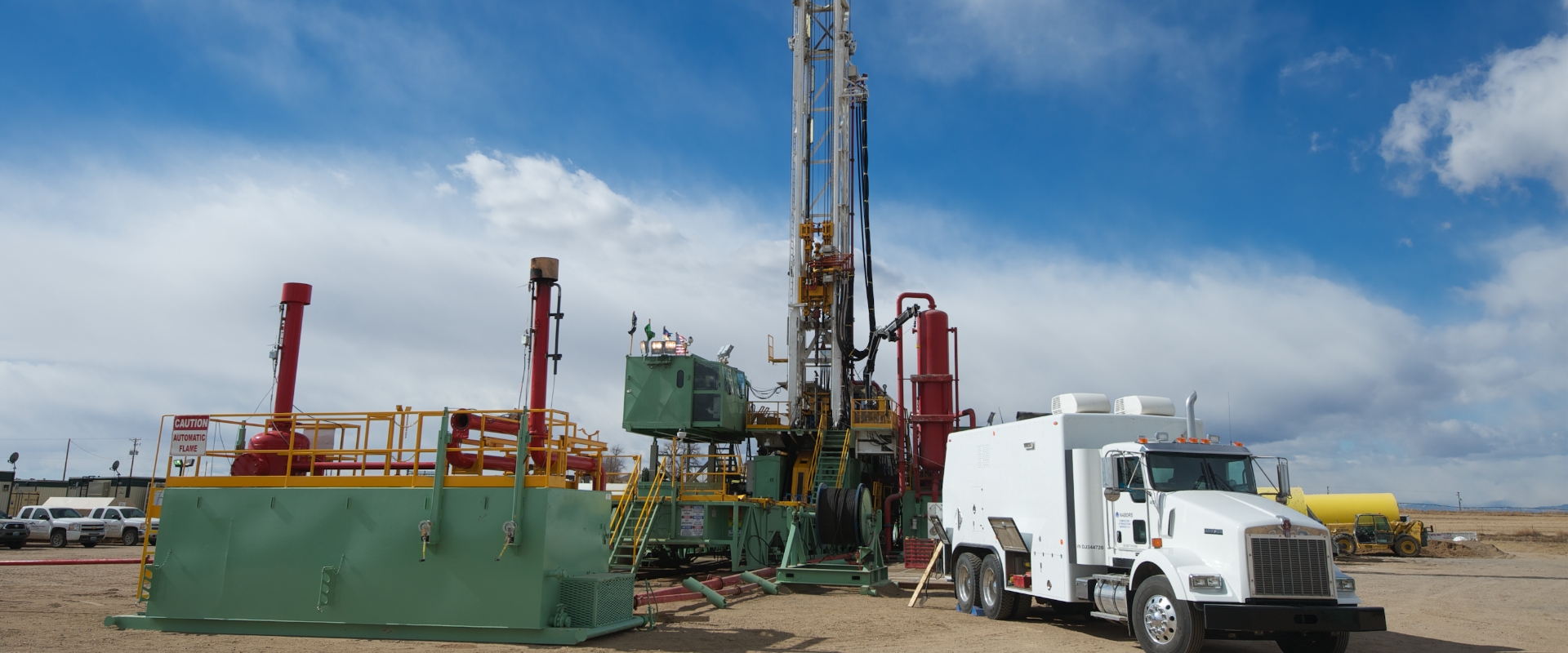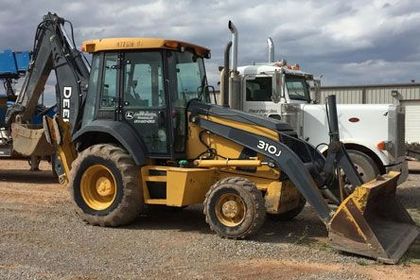Superior Rentals reviews: strengths and weaknesses
Wiki Article
A Comprehensive Guide to the Various Kinds of Oil Field Equipment and Pipeline Equipment Available
The oil and gas industry depends greatly on specific equipment for efficient extraction and transport. Numerous kinds of machinery, from piercing rigs to tank, play vital roles in this complicated procedure. Each tool serves distinct functions that add to general operational success. Recognizing these parts is crucial for anyone associated with the industry. As the market advances, so also do the technologies that support it. What advancements are on the perspective?
Drilling Rigs: The Foundation of Oil Exploration
Drilling rigs serve as the crucial machinery in the domain name of oil exploration, making it possible for business to accessibility hydrocarbon books hidden deep underneath the Earth's surface area. These rigs come in numerous types, consisting of land rigs, offshore rigs, and mobile units, each made to run in particular environments. Furnished with advanced innovation, piercing rigs can penetrate geological developments with accuracy, guaranteeing reliable resource extraction. The structural stability and operational capabilities of these rigs are crucial, as they need to hold up against extreme problems and substantial pressures. In addition, the selection of a drilling rig influences the general project cost and timeline, making it an important factor to consider for oil firms looking for to enhance their exploration efforts and make the most of productivity in their procedures.Pumps: Important for Fluid Activity
In the oil extraction procedure, the role of pumps is considerable, helping with the motion of liquids throughout various phases of manufacturing. Pumps are important for moving petroleum, water, and other liquids from underground reservoirs to the surface area and after that via pipes to refineries. They can be found in numerous kinds, including centrifugal, favorable variation, and submersible pumps, each serving certain functions based on the fluid features and functional demands. Centrifugal pumps are frequently utilized for their efficiency in high-flow applications, while favorable variation pumps master managing viscous liquids. The option of pump effects overall performance, functional security, and upkeep prices. Appropriate selection and maintenance of pumps are vital for maximizing manufacturing and reducing downtime in oil field procedures.Shutoffs: Managing Circulation and Pressure

Valves play a crucial function in taking care of the flow and pressure of liquids within oil areas and pipelines. Different kinds of shutoffs serve unique applications, each made to fulfill certain features fundamental for reliable operation - Superior rentals squeeze tools. Understanding the attributes and usages of these shutoffs is essential for optimizing system efficiency and safety
Sorts of Valves
Necessary components in oil area procedures, shutoffs play a crucial role in controlling the circulation and stress of fluids within pipes and equipment. Different sorts of shutoffs are made use of to fulfill the varied needs of oil and gas production. Usual kinds include entrance valves, which provide a straight-line circulation and marginal stress decline; world shutoffs, understood for their throttling abilities; and ball valves, recognized for their fast on/off control. Additionally, check shutoffs protect against heartburn, while butterfly valves provide a lightweight service for controling flow. Each valve kind is created with certain materials and configurations to withstand the harsh problems usually located in oil fields, guaranteeing reliability and performance in procedures. Comprehending these types is critical for reliable system administration.Valve Applications and Functions
While various sorts of valves offer distinctive purposes, their key applications focus on controlling circulation and pressure within oil and gas systems. Shutoffs such as entrance, globe, and sphere valves manage fluid activity, guaranteeing peak performance and security. Gate shutoffs are typically utilized for on/off control, supplying minimal circulation resistance. Globe shutoffs, on the various other hand, offer specific circulation regulation, making them appropriate for throttling applications. Sphere shutoffs are favored for their quick procedure and limited sealing capabilities. Furthermore, stress relief valves are essential for stopping system overpressure, safeguarding devices honesty. Overall, the ideal choice and application of shutoffs improve functional effectiveness, making certain the reputable transportation of oil and gas with pipes and handling facilities.Compressors: Enhancing Gas Transportation
Compressors play an important role in the effective transportation of gas, guaranteeing that it moves efficiently through pipelines over cross countries. These gadgets raise the stress of natural gas, allowing it to get rid of rubbing and altitude modifications within the pipeline system. Furthermore, compressors promote the harmonizing of supply and need, accommodating changes in intake and manufacturing rates. Various kinds of compressors are used in the sector, consisting of centrifugal, reciprocating, and rotating screw compressors, each offering distinctive benefits based upon the functional needs. Normal upkeep of these compressors is important to make best use of efficiency and reduce downtime, inevitably adding to a trusted gas transport network. Their essential feature emphasizes the relevance of compressors in the overall oil and gas infrastructure.Storage Tanks: Safe and Effective Fluid Management
Effective transportation of all-natural gas depends on various sustaining systems, one of which is the proper administration of tank. These storage tanks play a necessary function in safely containing liquids, making certain that functional effectiveness is maintained while minimizing ecological threats. Created from sturdy products, they are created to withstand high stress and destructive elements. Properly sized and purposefully located, tank help with the smooth circulation of gas and other liquids, preventing traffic jams in supply chains. Regular upkeep and tracking are crucial to spot leakages or structural concerns, promoting safety and security and compliance with governing requirements. Inevitably, the effective monitoring of tank is vital for the overall honesty and dependability of the oil and gas industry's liquid handling systems.
Pipeline Systems: Framework for Transportation
Pipeline systems work as the foundation of the oil and gas sector, assisting in the efficient transportation of hydrocarbons over substantial distances. These systems consist of numerous components, including pipelines, shutoffs, pumps, and compressors, all thoroughly designed to ensure smooth circulation. The materials made use of in pipeline construction, commonly steel or high-density polyethylene, are selected for longevity and resistance to rust. Pipeline networks index can cover throughout land and water, connecting production websites to refineries and circulation. Additionally, advanced technology allows real-time tracking of flow rates and stress degrees, enhancing functional efficiency. The tactical positioning of these pipes lessens ecological impact while maximizing resource ease of access, thereby playing a vital function in conference energy demands worldwide.Security Equipment: Making Sure Worker and Environmental Security
The operation of pipeline systems, while vital for power transport, additionally presents significant safety and security difficulties for workers and the setting. Safety equipment plays a substantial role in minimizing these threats. Personal protective equipment (PPE) such as safety helmets, gloves, and non-slip footwear safeguards employees from physical threats. Furthermore, gas detection systems monitor for leakages, making sure that harmful compounds do not position a hazard to employees or the bordering environment. Emergency situation shutdown systems are critical for quickly halting operations during a crisis, preventing possible catastrophes. Spill containment materials, consisting of absorbents and obstacles, are fundamental for decreasing ecological impact. On the whole, buying all-encompassing security equipment is essential for preserving functional stability and shielding both workers and the setting in the oil and gas industry.
Regularly Asked Questions
Just how Do I Choose the Right Oil Field Equipment for My Project?
Choosing the right oil area devices includes examining project requirements, spending plan constraints, and operational demands. Take into consideration factors such as tools integrity, compatibility with existing systems, and the vendor's credibility to guarantee peak performance and safety and security.What Are the Upkeep Demands for Oil Field Equipment?
Maintenance requirements for oil area devices include regular inspections, lubrication, and prompt repair work. Operators should also stick to maker guidelines, monitor efficiency metrics, and assurance compliance with safety and security guidelines to enhance longevity and efficiency.
Just How Can I Guarantee Conformity With Environmental Regulations?
To assure compliance with ecological regulations, business have to perform regular audits, execute finest methods, spend in used excavator for sale training, keep correct documentation, and stay updated on legislation (Superior Oilfield pipeline equipment rentals). Partnership with environmental agencies can likewise enhance adherence to regulationsWhat Is the Ordinary Lifespan of Pipeline Equipment?
The ordinary lifespan of pipeline equipment commonly varies from 20 to 50 years, depending on elements such as material quality, environmental building equipment problems, and upkeep methods. Routine assessments can significantly affect long life and functional performance.How Do I Safely Carry Oil Field Equipment to Remote Locations?
Carrying oil field tools to remote places requires mindful preparation, including route analysis, protecting permits, using appropriate automobiles, and ensuring security methods are adhered to. Proper training and communication among crews are necessary for effective transportation.Report this wiki page